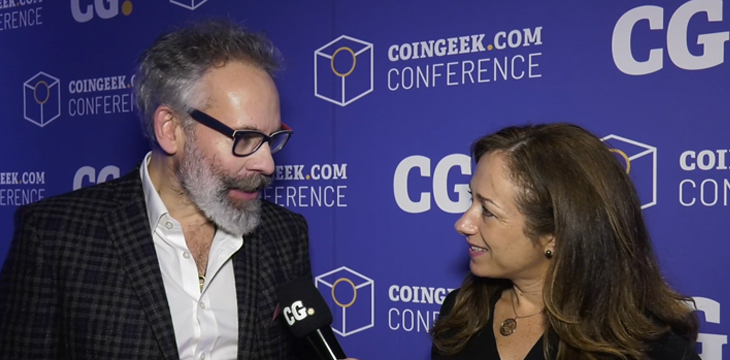|
Getting your Trinity Audio player ready...
|
Dominic Frisby has a clear vision of what the future holds, for both cryptourrency and the world at large. He joined CoinGeek’s Becky Liggero to discuss the state of crypto markets, and what digital currency means to the workforce and world governments.
The current long downturn in the cyptocurrency market has a lot of people down, but Frisby knows that this too shall pass. He explained the Gartner Hype Cycle, and what it means for crypto’s future.
“So you have the initial technology trigger when it’s invented, then you have the point at which everyone gets very excited, and that’s the peak of inflated expectations, think of dotcom in 2000.
“And then a kind of reality sets in, and people start to realize that actually, we need to do a lot of work to get this technology working really well to get mainstream adoption. A few incompetents are exposed, there’s a couple of scams get revealed, and suddenly the world that was massively in love with the sector falls out of love with the sector. And you go into this kind of trough of disillusionment, and then gradually, the sort of bad, malfeasant operators get weeded out, and only the serious players are left.
“Gradually it builds and builds and builds, and this would be the Internet from 2003 to today… Bitcoin needs to climb that slope of enlightenment on its way to the plateau of productivity.”
Frisby knows that mass adoption of cryptocurrency is inevitable, because the opportunity for it is too great. He said, “There’s still 2 billion unbanked people in the world, who will be able to accept cryptocurrencies as a means of payment. Before, they would never get a bank account.”
Those who don’t understand why we need cryptocurrency just aren’t looking at current trends enough to understand where the world is going. “The intangible economy is now bigger than the tangible economy,” Frisby notes. “It’s borderless, it’s the internet, there’s no borders. We’ve got money without borders, and more and more people are turning freelance, the traditional employee-employer relationship is dying.”
Cryptocurrency is needed as a solution because there will be no other way to sensibly pay this new workforce. Frisby thought it through, saying, “You’re looking at a digital nomad population of a billion people. That’s an extraordinarily high number, and it has all sorts of implications for the way they receive payment. They’re borderless people. They’re going to want to be paid in borderless money.”
This is all going to be a big headache for national governments to tax if they can’t keep up. He points out, “They’re going to struggle; you know the government has always struggled to tax the intangible economy. It struggles to tax Google and Facebook, it’s going to struggle to tax cryptocurrencies, it’s going to struggle to tax digital nomads who are operating in crypto money.”
The implications of this are clear, governments that can’t figure out a new tax regime will struggle to provide services that their citizens have come to expect. That can be a bit scary for untold millions of people who rely on the government for daily needs.
Frisby isn’t too worried though. When asked about the future of cryptocurrency, he simply concludes, “It’ll be all right in the end.”

 03-01-2026
03-01-2026 




